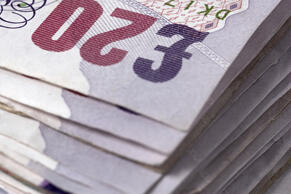HMRC wins big in “tax on gifts” case
Bernie Ecclestone’s lawyer faces a massive tax bill following the First-tier Tribunal’s (FTT’s) ruling that sums he received as gifts were income. What made the FTT decide the payments were taxable?

Over a period of 14 years Bernie Ecclestone’s former wife, Slavica, made payments totalling around £37 million to Stephen Mullens, Ecclestone’s lawyer. He claimed these gifts resulted from their "personal relationship of friendship and affection" and that they were wholly outside and distinct from any business relationship. Despite hearing evidence of Mrs Ecclestone’s generosity and a document purporting to be a deed of gift relating to a payment in 2006, the FTT considered all the payments, apart from one, were actually a reward for professional services provided by Mullens.
It is possible for a payment to be a gift, and so not taxable as income, even where a business relationship exists between the payer and the recipient, but the burden of proof is high. Mullen’s case was hindered because neither Bernie Ecclestone nor his former wife gave evidence. The FTT judges said they had no hesitation in deciding that Mullens had acted fraudulently in not declaring the payments and then representing them as gifts.
The FTT also ruled that because of Mullen’s deliberate action to hide the payments HMRC was entitled to make back-assessments under the rules of discovery. These give HMRC more time (up to 20 years) in cases of tax lost because of fraud compared with that lost from carelessness.
Related Topics
-
HMRC has withdrawn Form 652. How should you notify VAT errors going forward?
-
Can paying interest to your company save tax?
You recently borrowed a substantial sum of money from your company rather than take extra salary or dividends. Your bookkeeper says it might be more tax efficient if your company charged you interest. This sounds counter-intuitive but is it correct?
-
Reverse charge and end user rules: opportunity?
If you sell construction services to other builders, you need to consider the domestic reverse charge rules. You must apply these where your customer is an end user. How might this create a cash-flow advantage?





 This website uses both its own and third-party cookies to analyze our services and navigation on our website in order to improve its contents (analytical purposes: measure visits and sources of web traffic). The legal basis is the consent of the user, except in the case of basic cookies, which are essential to navigate this website.
This website uses both its own and third-party cookies to analyze our services and navigation on our website in order to improve its contents (analytical purposes: measure visits and sources of web traffic). The legal basis is the consent of the user, except in the case of basic cookies, which are essential to navigate this website.